- Responsibility at Tekla
- 2023-2024 update
- Highlights
- B Corp
- Read more
Responsibility at Tekla
Tekla recognises its responsibility to mitigate its impact. We design for longevity and produce responsibly, aspiring to move beyond just compliance with social and environmental requirements.
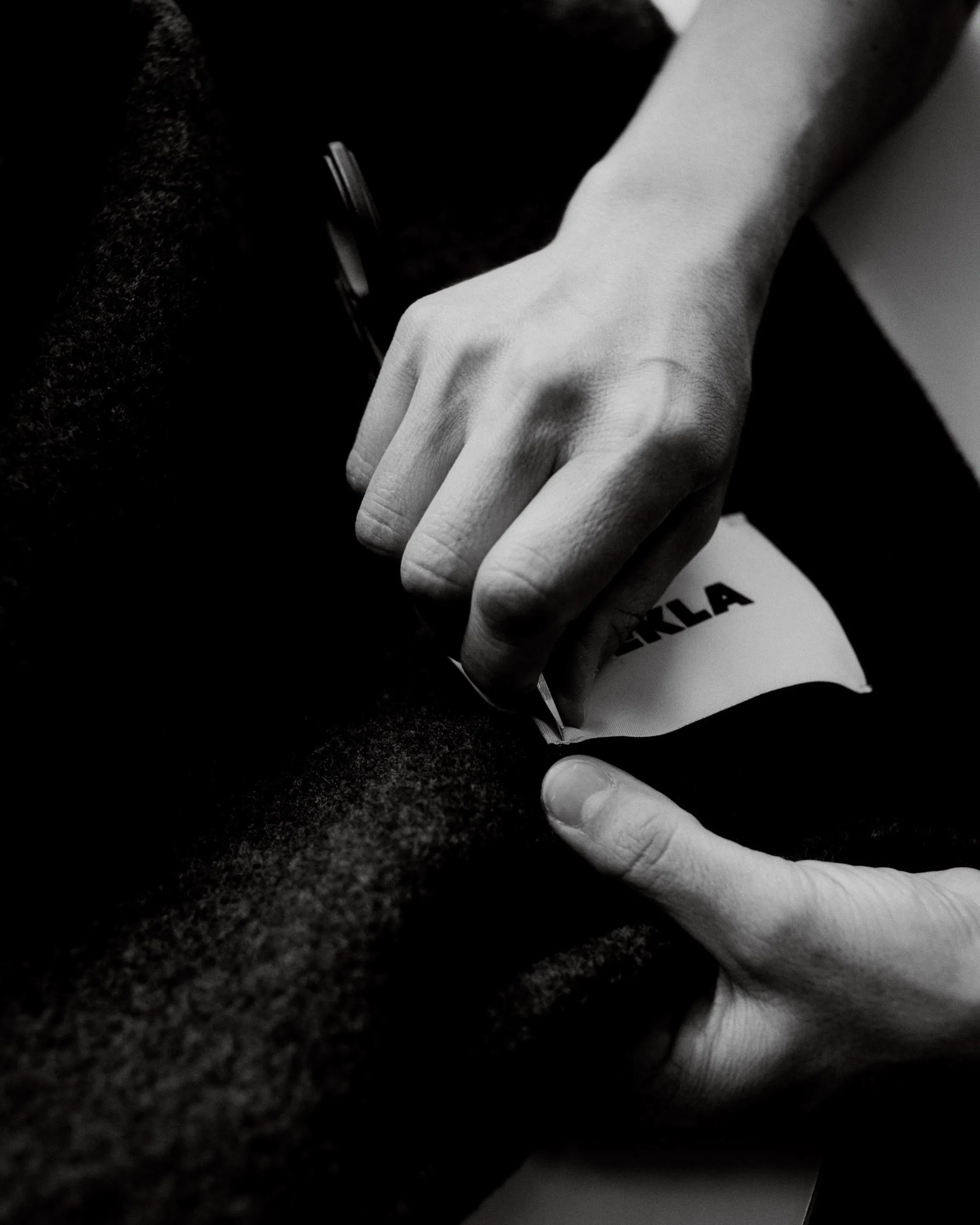
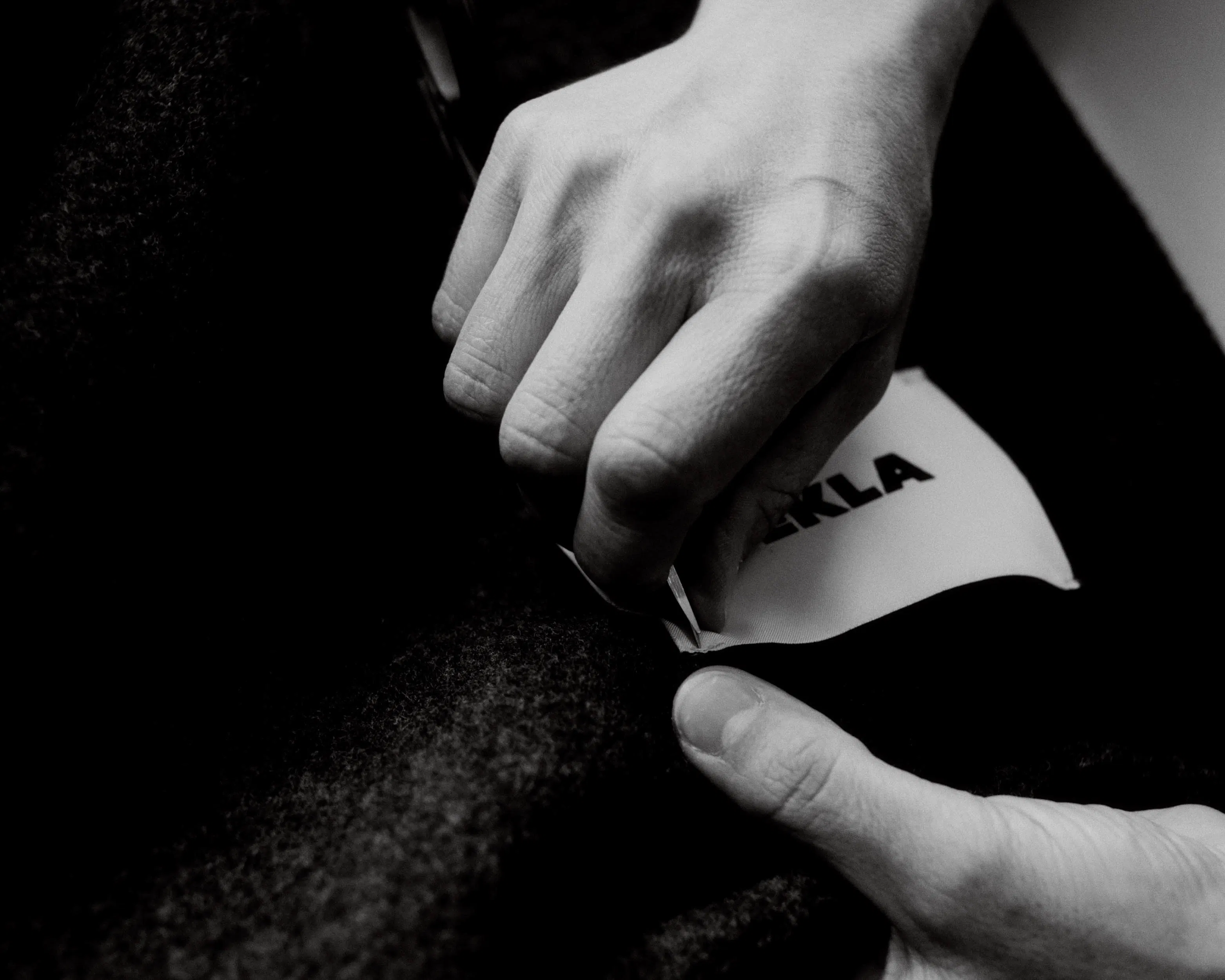
We do not call ourselves a sustainable brand – bringing new products into the world is fundamentally at odds with the definition of sustainability, so it would be irresponsible to do so.
But we do strive to be more responsible by measuring our impact so we can better understand how to mitigate it. We report on this annually to provide transparency and support change in our industry.
Responsibility report
2023-2024
This is our third annual report on our journey toward greater responsibility for our impact. We’re excited to share our progress as we continue to assess our impact across four key areas: climate action, materials, traceability, and social responsibility.
In our first report, we laid the foundations for our work with 19 environmental and social goals. In our second, we provided an update, sharing what we had achieved, what needed reassessment and what was still in progress. We also celebrated our B Corp certification, introduced our topline decarbonisation plan and summarised the 12 goals to be continued.
This year's report contains an update on those 12 goals, with five accomplished, and a full review of our decarbonisation efforts – work we are particularly proud of. Few companies of our size are working towards decarbonisation, but we believe the initial steps we have outlined could serve as a blueprint for those that are.
We have already seen great success from this initiative. For instance, despite a 15.8% increase in production, we’ve managed to reduce our carbon emissions related to purchased goods and services by 2.5%. This contributed to a minimal increase of 1-2% to the total company carbon footprint despite almost 30% growth.
Whilst we continue to do as much as we can within our operations and with the resources we have, we recognise that systemic barriers limit what any single company can achieve. That’s why we’re proud to continue our support of ClientEarth, an environmental charity using the power of the law to drive systemic change.
Download the report to read it in full or discover the highlights below.
Decarbonising our operations
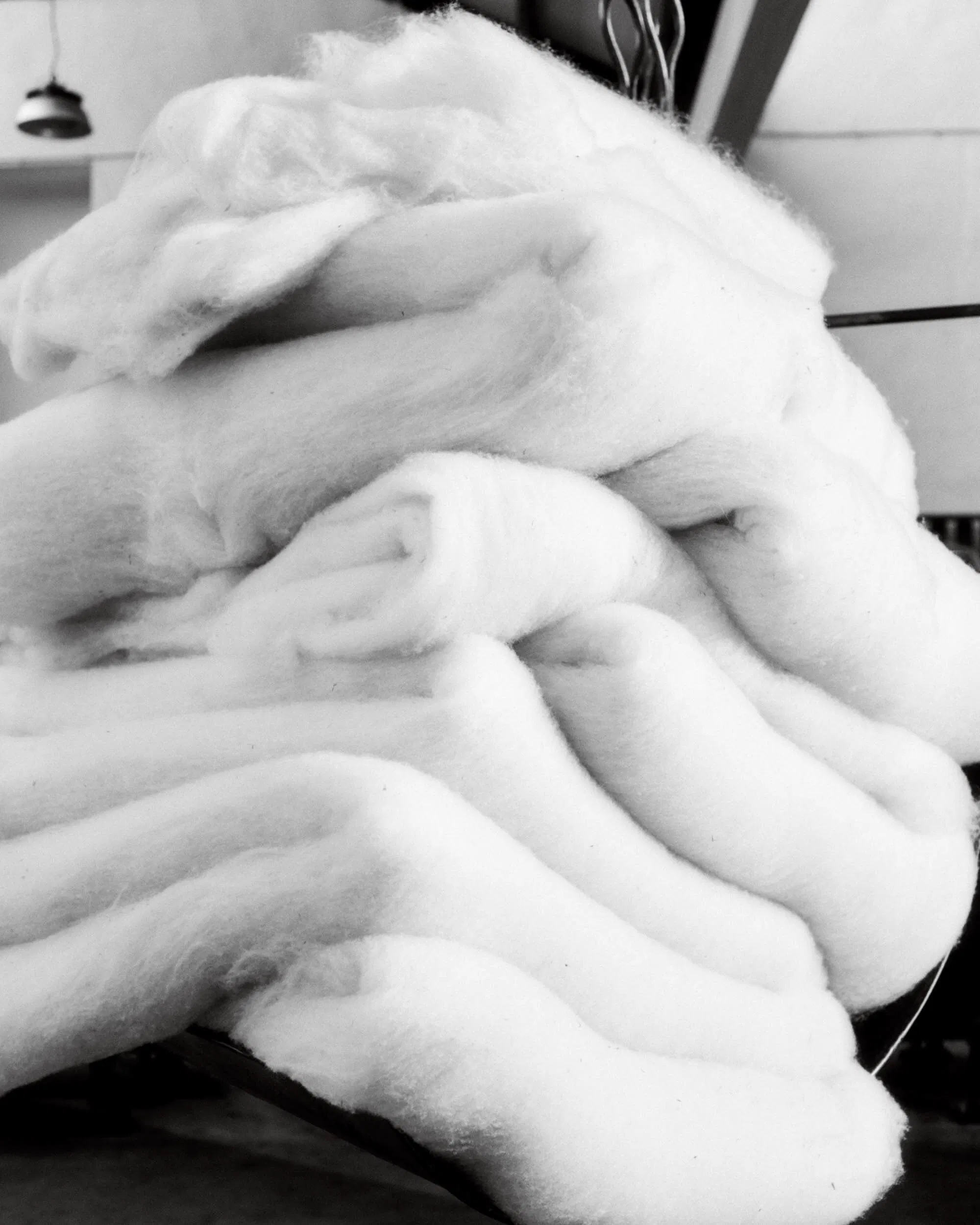
As part of our topline decarbonisation plan, we hosted a supplier engagement initiative focused on energy use in production. Our goal was to provide free resources and support to our tier 1 suppliers (direct suppliers of finished products), empowering them to take on this work independently and remove as many barriers as possible. We were thrilled that all six invited – including three of our largest – attended and participated with enthusiasm. Through this work, these suppliers have started to share their scope 1 and 2 emissions data and have installed solar panels, achieving a 73.1% reduction in their scope 1 and 2 emissions. This has contributed to a 2.5% reduction in our 2023 purchased goods and services emissions, despite increasing production by 15.8% compared to 2022.
While the company grew by almost 30% this year compared to 2022, we observed a minimal increase of 1-2% to the total company carbon footprint.

As part of our topline decarbonisation plan, we hosted a supplier engagement initiative focused on energy use in production. Our goal was to provide free resources and support to our tier 1 suppliers (direct suppliers of finished products), empowering them to take on this work independently and remove as many barriers as possible. We were thrilled that all six invited – including three of our largest – attended and participated with enthusiasm. Through this work, these suppliers have started to share their scope 1 and 2 emissions data and have installed solar panels, achieving a 73.1% reduction in their scope 1 and 2 emissions. This has contributed to a 2.5% reduction in our 2023 purchased goods and services emissions, despite increasing production by 15.8% compared to 2022.
While the company grew by almost 30% this year compared to 2022, we observed a minimal increase of 1-2% to the total company carbon footprint.
Recyclable packaging
This year, we made the switch to paper-based poly bags, helping us meet our final two packaging goals: all single-use packaging is now widely recyclable and has clear on-packing recycling instructions ahead of this becoming a mandatory requirement in the EU. Although our former poly bags were made from biodegradable plastic, we found this was only possible under certain conditions, which were hard to guarantee. We are especially proud of this solution, which came following years of development, as it is in line with our commitment to mitigating our impact while maintaining our design standards. We’re pleased to share that we have met all our materials goals ahead of our 2025 target.
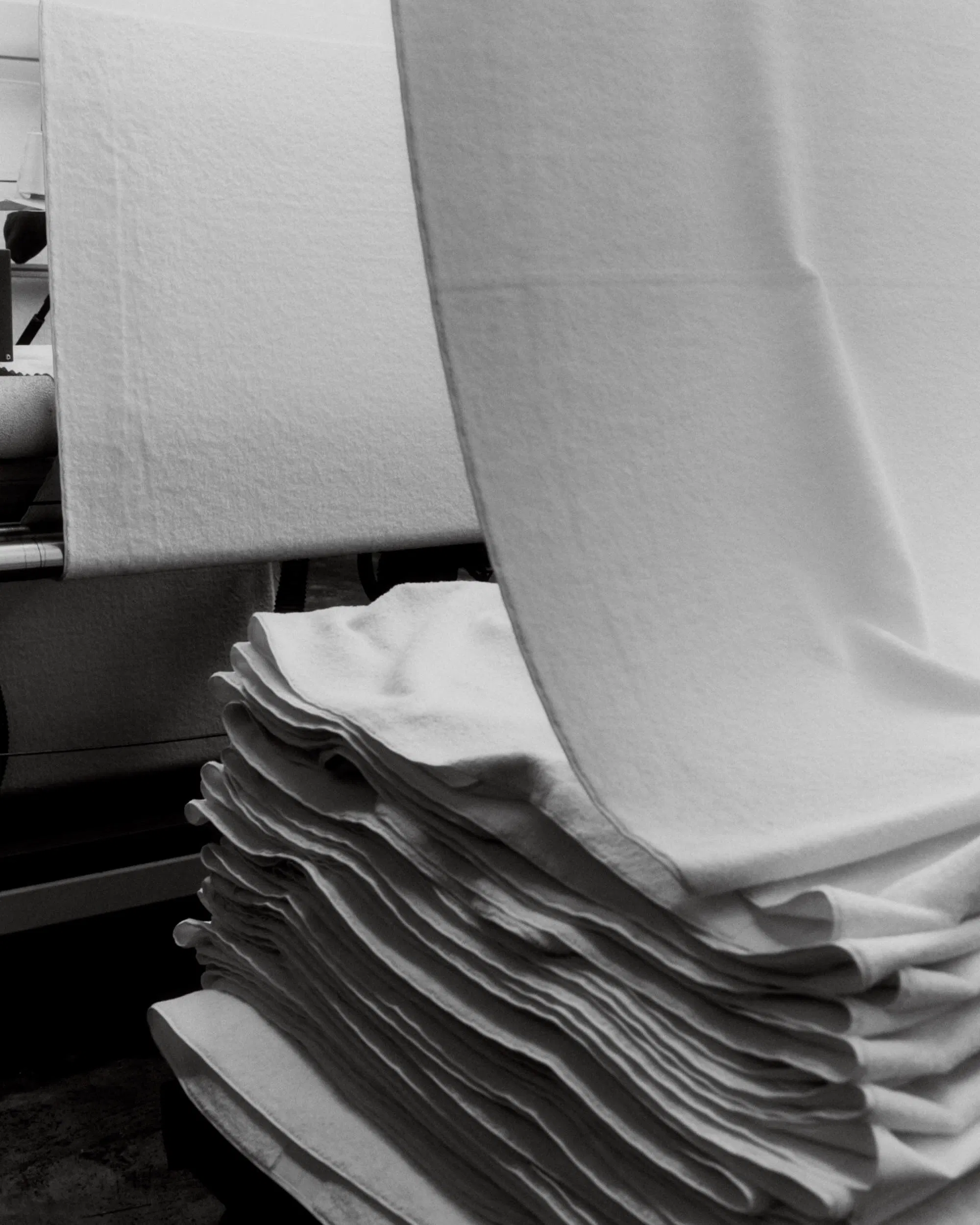
This year, we made the switch to paper-based poly bags, helping us meet our final two packaging goals: all single-use packaging is now widely recyclable and has clear on-packing recycling instructions ahead of this becoming a mandatory requirement in the EU. Although our former poly bags were made from biodegradable plastic, we found this was only possible under certain conditions, which were hard to guarantee. We are especially proud of this solution, which came following years of development, as it is in line with our commitment to mitigating our impact while maintaining our design standards. We’re pleased to share that we have met all our materials goals ahead of our 2025 target.

Tracing production
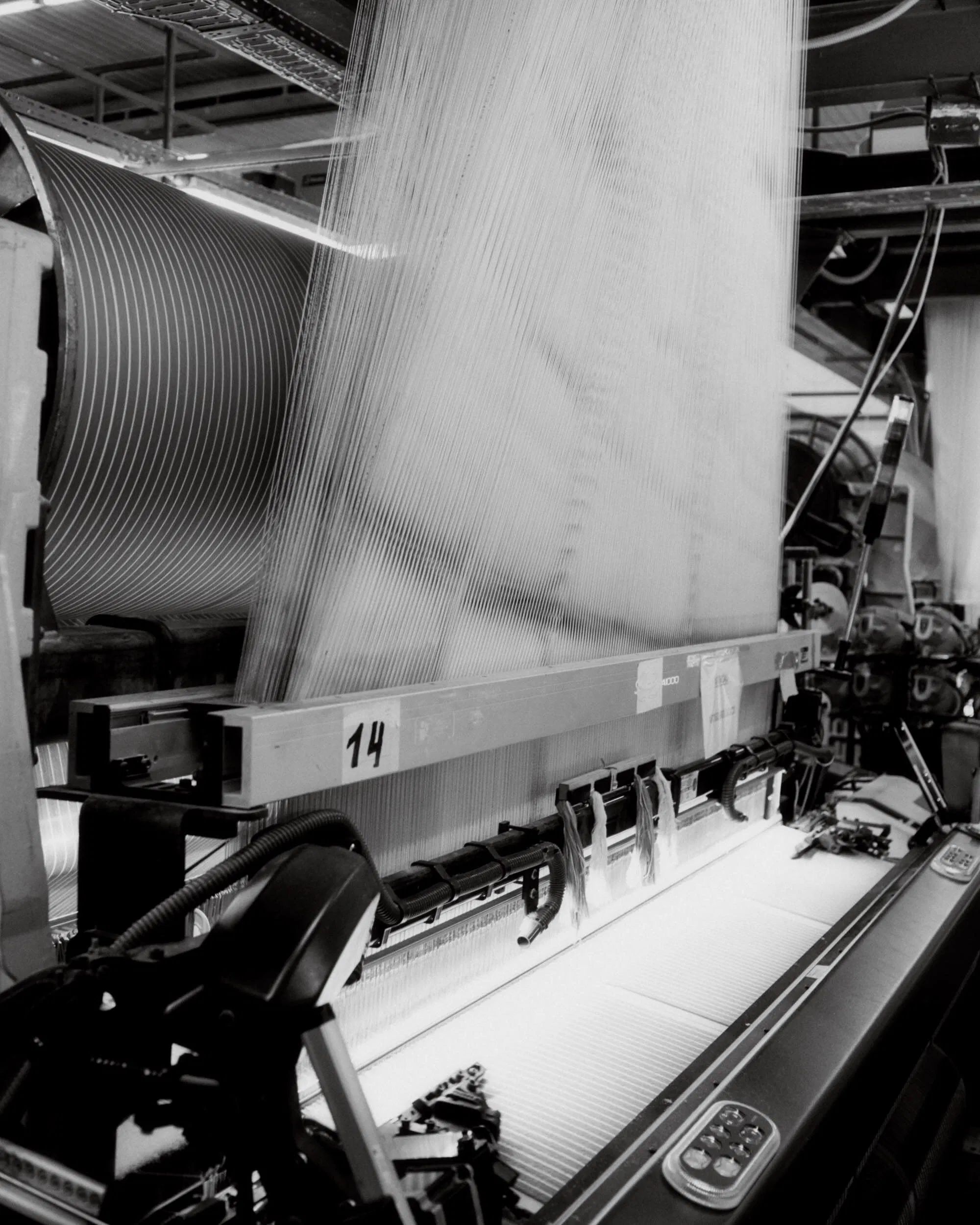
We’re excited to have started a new project with Fairly Made, a leading platform that helps measure product impact and traceability. This initiative will give us deeper insights into our supply chain, which we are aiming to share on our webshop, providing our community with more visibility on how and where our collections are made. Although this work is still in its early stages, we’re eager to share more in the future.
We’re excited to have started a new project with Fairly Made, a leading platform that helps measure product impact and traceability. This initiative will give us deeper insights into our supply chain, which we are aiming to share on our webshop, providing our community with more visibility on how and where our collections are made. Although this work is still in its early stages, we’re eager to share more in the future.

Supporting systemic change
Since our last report, we’ve hosted two events for ClientEarth, an environmental charity using the power of the law to protect all life on Earth. These included a gathering of our close community in Stockholm and an awareness-raising exhibition of The Mountains Between Us by Lena C. Emery at Frieze’s No.9 Cork Street gallery. We’re thrilled to report that these events have raised approximately €452,000 for ClientEarth, with donations still being received. We believe ClientEarth is a key player in creating meaningful, systemic change, so we’re proud to support their vital work.
Learn more about the work they do: https://www.clientearth.org/
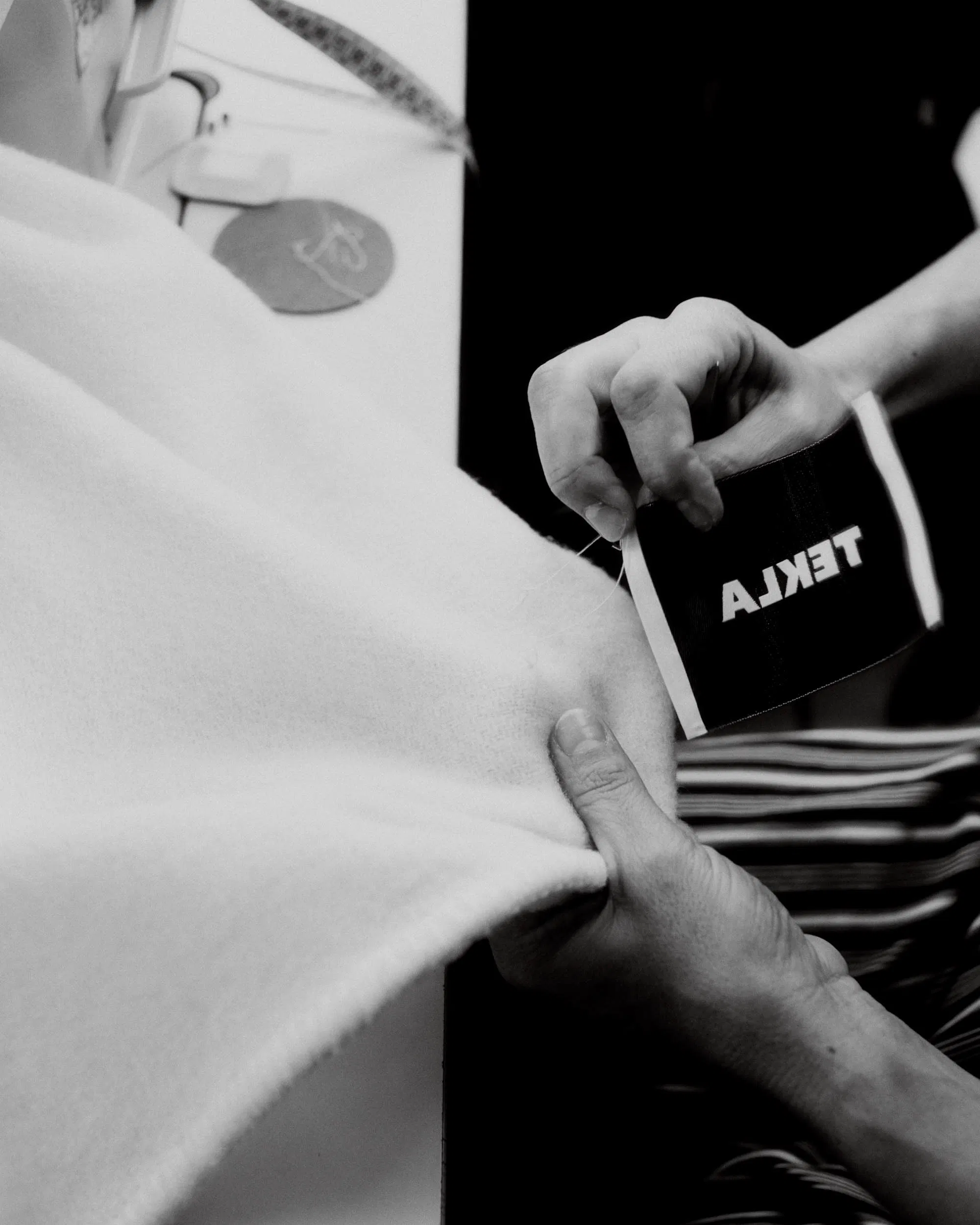
Since our last report, we’ve hosted two events for ClientEarth, an environmental charity using the power of the law to protect all life on Earth. These included a gathering of our close community in Stockholm and an awareness-raising exhibition of The Mountains Between Us by Lena C. Emery at Frieze’s No.9 Cork Street gallery. We’re thrilled to report that these events have raised approximately €452,000 for ClientEarth, with donations still being received. We believe ClientEarth is a key player in creating meaningful, systemic change, so we’re proud to support their vital work.
Learn more about the work they do: https://www.clientearth.org/

B Corp

B Corp
In 2023, Tekla met B Lab’s high standards and joined a global movement of people using business as a force for good by becoming B Corp certified.
A B Corp is a company verified by B Lab to be purpose-driven, resulting in a holistic certification that covers the entirety of business operations. B Corps make a legal commitment to consider the interests of all stakeholders in their business operations, creating benefits for not just shareholders.
In 2023, Tekla met B Lab’s high standards and joined a global movement of people using business as a force for good by becoming B Corp certified.
A B Corp is a company verified by B Lab to be purpose-driven, resulting in a holistic certification that covers the entirety of business operations. B Corps make a legal commitment to consider the interests of all stakeholders in their business operations, creating benefits for not just shareholders.
Joining B Corp reflects many of our existing values, but it also presents us with an opportunity to continue to build the company in a responsible way.

Read more
Learn more about our work to be more responsible. Read all reports from 2021 onwards.
Learn more about our work to be more responsible. Find reports from 2021 onwards and additional appendices.


